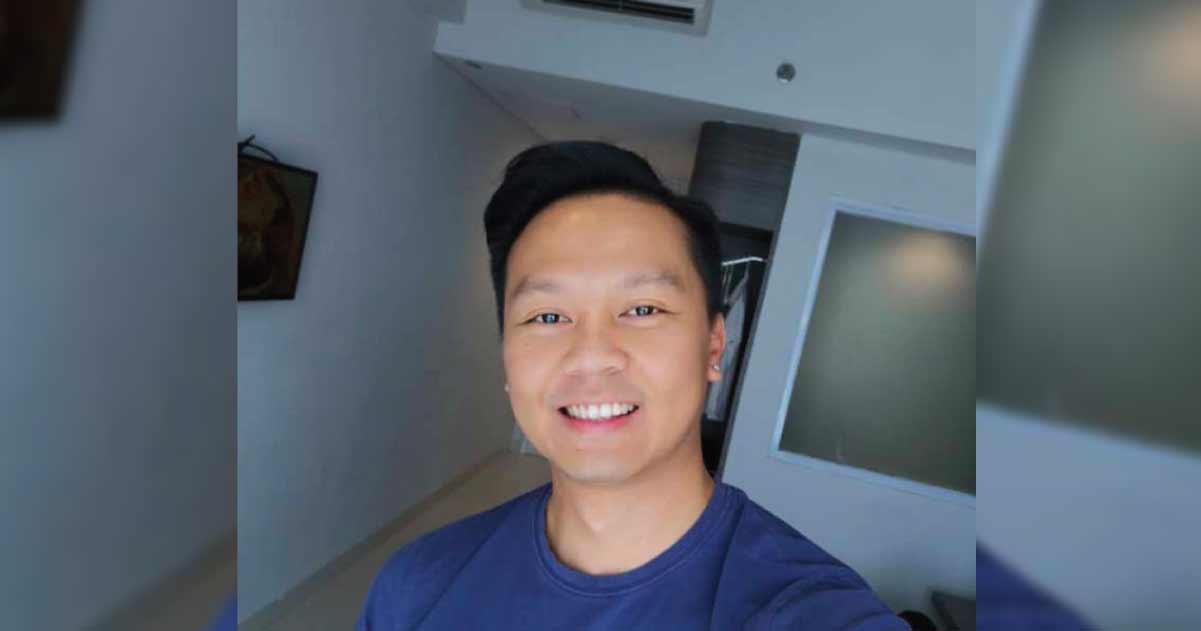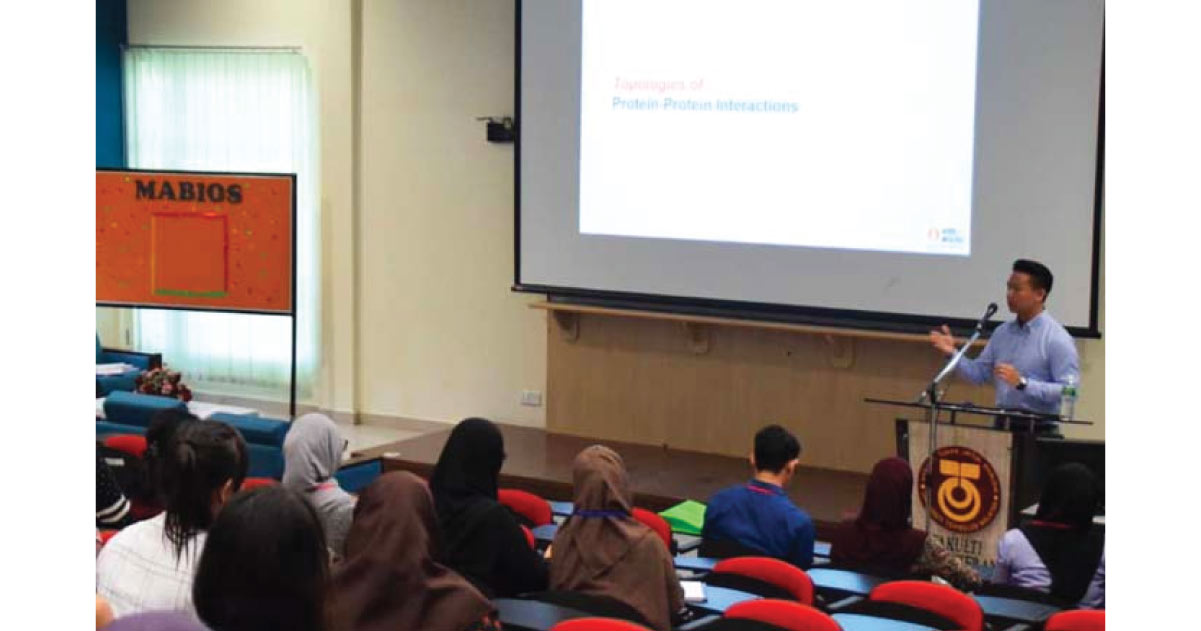

Drug-resistant microbes are among medicine’s biggest challenges. When it was first widely used penicillin may have been effective in fighting infections that would have been fatal pre-1940s, but the rise of drug resistance ever since has seen some 2 million drug-resistant infections killing thousands yearly.
Antibiotic resistance may have reached epidemic proportions in this age of the coronavirus; but with more newly available data than ever, there is hope that medical scientists will discover ways to combat it. Bringing such hope are bioinformaticists – the experts adept at handling massive scientific data.
Unlike bioinformaticians – who basically are the technicians of bioinformatic tools – bioinformaticists are capable of writing programmes that bring about effective use of such tools. In this regard, they are likened to mechanical engineers who develop systems and devices for the biomedical field.
In his capacity as a data scientist - whose skillset is higher than that of a bioinformaticist – one alumnus of Management and Science University (MSU) once found himself saving more than a million Ringgit for an employer through his prevention of data leakage.
Currently pursuing a Doctor of Philosophy (by Research) in Biomedicine at MSU's School of Graduate Studies (SGS) – researching into the genes specific to each COVID-19 phase by using Artificial Intelligence’s Deep Learning, through deep-x-ray image recognition and biological pathway – Alfred Simbun had been the Faculty of Health and Life Sciences (FHLS) Department of Diagnostic and Allied Health Science’s first Best Student for Bioinformatics and received the Best Thesis award when he graduated as a Bachelor in Bioinformatics (Hons) in 2007. He has had a paper on 'Genome sequence analysis of multidrug-resistant Mycobacterium tuberculosis from Malaysia' published in Nature’s Scientific Data.
“I was among MSU’s first Bioinformatics graduate from the programme’s first intake in 2004. Post-internship, I frequently gave talks on the bioinformatic applications and approaches that are relevant to various industries. I’ve even served as a consultant on the University Industry Advisory Panel (UIAP) to UTM Skudai’s School of Computing. I’ve also been involved in several AI and Data Science projects but two remain my most outstanding experiences. One was for Petronas, where I projected the corrosion levels at oil and gas plants; the other was at AXA, where I developed advanced AI for third-party insurance-claim processing.”

Now a Data Science Manager at Fraser & Neave (F&N), Alfred Simbun enjoys the challenges of working in such a demanding field.
“What makes all my achievements more special is that I was not even from the pure science stream in secondary school, yet the skills I developed during my studies on the Diploma in Information Technology programme at the MSU College [formerly PTPL] in Sabah sufficiently helped me build an interactive website on colon cancer; which I presented to, and impressed, my genetics professor at MSU. It’s saying a lot about the quality of education that I received, even from that diploma level. Now my work has helped organizations to reduce maintenance costs, Human Resources to retrain employees, and companies to maximize earnings.”
RELATED
MSU Bachelor of Science (Honours) in Mechanical Engineering
Industry input informs university teaching
Drug-resistant microbes are among medicine’s biggest challenges. When it was first widely used penicillin may have been effective in fighting infections that would have been fatal pre-1940s, but the rise of drug resistance ever since has seen some 2 million drug-resistant infections killing thousands yearly.
Antibiotic resistance may have reached epidemic proportions in this age of the coronavirus; but with more newly available data than ever, there is hope that medical scientists will discover ways to combat it. Bringing such hope are bioinformaticists – the experts adept at handling massive scientific data.
Unlike bioinformaticians – who basically are the technicians of bioinformatic tools – bioinformaticists are capable of writing programmes that bring about effective use of such tools. In this regard, they are likened to mechanical engineers who develop systems and devices for the biomedical field.
In his capacity as a data scientist - whose skillset is higher than that of a bioinformaticist – one alumnus of Management and Science University (MSU) once found himself saving more than a million Ringgit for an employer through his prevention of data leakage.
Currently pursuing a Doctor of Philosophy (by Research) in Biomedicine at MSU's School of Graduate Studies (SGS) – researching into the genes specific to each COVID-19 phase by using Artificial Intelligence’s Deep Learning, through deep-x-ray image recognition and biological pathway – Alfred Simbun had been the Faculty of Health and Life Sciences (FHLS) Department of Diagnostic and Allied Health Science’s first Best Student for Bioinformatics and received the Best Thesis award when he graduated as a Bachelor in Bioinformatics (Hons) in 2007. He has had a paper on 'Genome sequence analysis of multidrug-resistant Mycobacterium tuberculosis from Malaysia' published in Nature’s Scientific Data.
“I was among MSU’s first Bioinformatics graduate from the programme’s first intake in 2004. Post-internship, I frequently gave talks on the bioinformatic applications and approaches that are relevant to various industries. I’ve even served as a consultant on the University Industry Advisory Panel (UIAP) to UTM Skudai’s School of Computing. I’ve also been involved in several AI and Data Science projects but two remain my most outstanding experiences. One was for Petronas, where I projected the corrosion levels at oil and gas plants; the other was at AXA, where I developed advanced AI for third-party insurance-claim processing.”

Now a Data Science Manager at Fraser & Neave (F&N), Alfred Simbun enjoys the challenges of working in such a demanding field.
“What makes all my achievements more special is that I was not even from the pure science stream in secondary school, yet the skills I developed during my studies on the Diploma in Information Technology programme at the MSU College [formerly PTPL] in Sabah sufficiently helped me build an interactive website on colon cancer; which I presented to, and impressed, my genetics professor at MSU. It’s saying a lot about the quality of education that I received, even from that diploma level. Now my work has helped organizations to reduce maintenance costs, Human Resources to retrain employees, and companies to maximize earnings.”
RELATED
MSU Bachelor of Science (Honours) in Mechanical Engineering
Industry input informs university teaching